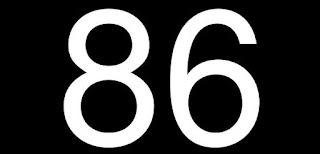This item concludes Trivia Week but, if the feedback is positive, I may repeat it with different topics at some future date. Let me know.
______________________________
Bee's Knees:
Why, I wondered, would someone or something that was greatly fancied and esteemed be referred to as being the bee’s knees?
Its original meaning in the 18th century was to describe something extremely small. In the 1920’s there was a shift of meaning where, along with a whole host of other terms used to describe something good, it was adopted by the flappers, much like young people today having their own slang vocabulary.
1920's flappers
Some examples of the 1920's American slang expressions coined with the meaning 'an outstanding person or thing':
the flea's eyebrow
the cat’s pajamas
the cat’s whiskers
the canary's tusks
Today only the bee’s knees and the cat’s whiskers survive, barely, but the Brits added their own version – the dog’s bollocks. This has been appropriated for a beer label, shop name and other uses.
__________________________________
The Whole Shebang:
I wondered where this expression came from when I heard it used in a movie.
It turns out that this is another originating from the 1920’s and likewise one of a number of terms used to indicate completeness:
the whole ball of wax
the whole nine yards
the whole box of dice
the whole shooting match
the whole enchilada
the whole kit and caboodle. . .
Walt Whitman used the term in Specimen Days, from Complete Poetry and Collected Prose, 1862, to mean a hut or rustic enclosure. Mark Twain used it in 1872 in Roughing It to mean a vehicle.
There is no authoritative explanation as to its origin but it has been speculated that it could derive from an early UK sightseeing bus, charabanc (pronounced sharra-bang). This comes from the French char-à-bancs - carriage with benches. Charabancs, affectionately known to passengers as 'sharras', were commonplace in Britain from the introduction of horse-drawn examples in the early 1800s to as late as the 1970s.
A Charabanc
The words have also been appropriated by various commercial products, including potato chips with slightly different spelling:
__________________________________
Holy Mackerel:
Similar to the previous words, I heard the term “holy mackerel” in a TV show and that had me wondering as well.
As with the other two above, this developed as one of a family of similar terms to express surprise:
Holy Moses!
Holy Smoke!
Holy Cow!
Holy Shit!
“Holy mackerel” is an interjection expressing astonishment or dismay and first became popular around the 1870s.
Both Holy Moses and Holy Mackerel are probably euphemisms for Holy Mary, which might be blasphemous if used in certain contexts.
__________________________________
Eighty six:
While we’re at it, I was watching some YouTube episodes of Ramsay’s Kitchen Nightmares (I like to relax with a bit of quality TV) and heard the other chef keep using the term “Eighty six it” when food was returned and had to be binned.
The term is used for getting rid of something or someone or to refuse service but where did that come from?”
According to the Oxford English Dictionary, the first verifiable use of 86 in the 'refuse service to' sense dates to a 1944 book about John Barrymore, a movie star of the 1920s famous for his acting and infamous for his drinking: "There was a bar in the Belasco building ... but Barrymore was known in that bar as an 'eighty-six', meaning 'Don't serve him.'"
Another theory of the term's origin is that it derives from a code supposedly used in some restaurants in the 1930s to mean 'We're all out of it.' It has been questioned, however, why being out of something has shifted to mean disposing of something.
Some alternative explanations:
- that specific restaurants and bars were legally barred from hosting more than 85 patrons on their premises at any one time, thus the 86th person to attempt to gain entry would be denied service;
- that a particular legal code (such as one governing liquor laws) contained an Article 86 that had something to do with refusing service or otherwise saying no to someone;
- that people thrown out of Chumley's Bar at 86 Bedford Street in New York would look up and see the number 86 over the door, leading to the expression that they had been 86ed;
- that excess navy stock after WW2 was disposed of in different ways, the stock being tossed into dumpsters being dealt with on a AT 6 form, thus men being told to "AT6 it" which became “eighty six”;














No comments:
Post a Comment
Note: Only a member of this blog may post a comment.